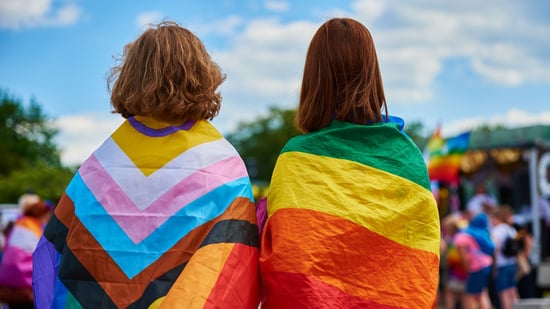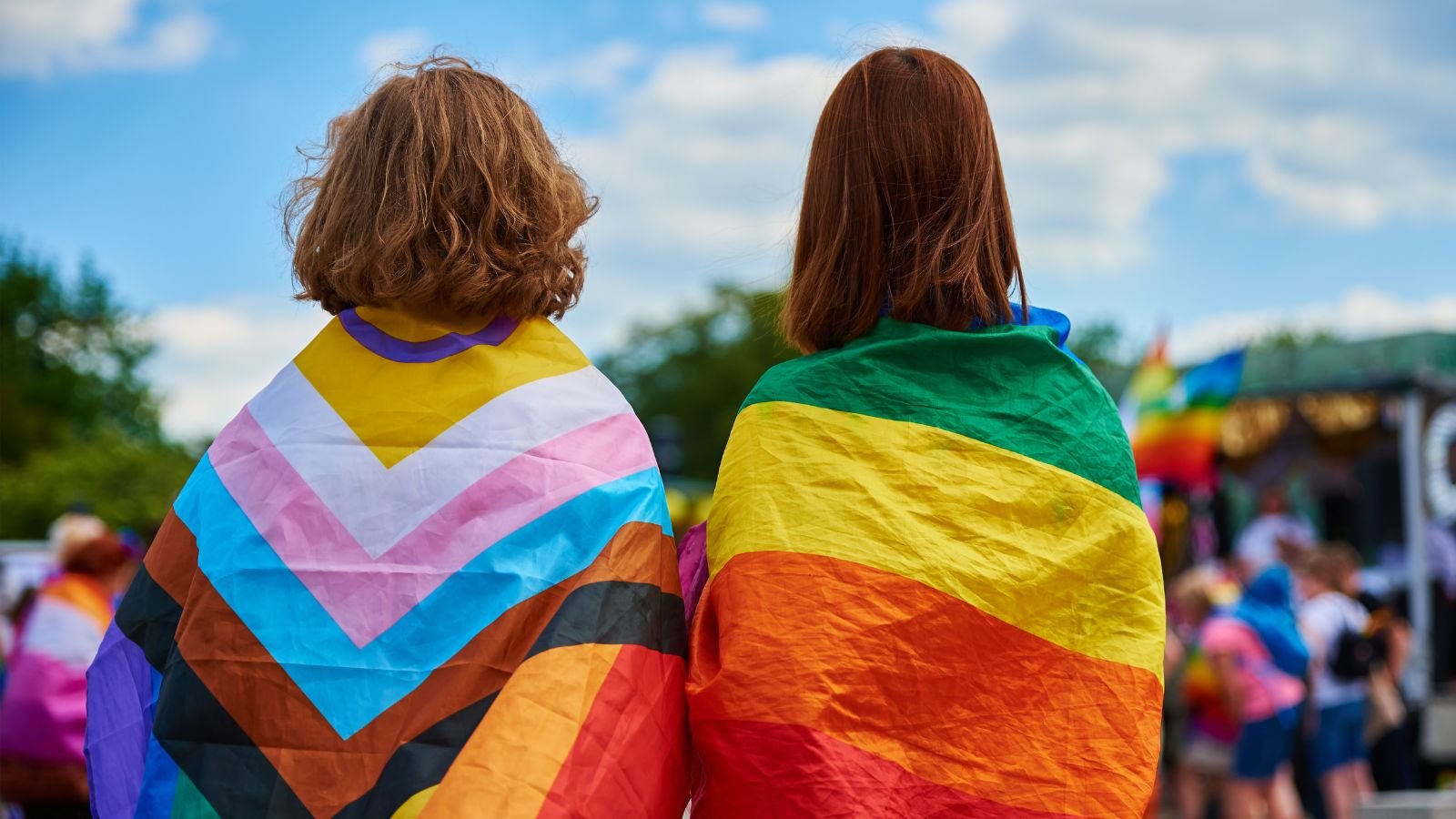Why LGBTQ+ Inclusivity is Essential in a Post-Roe v. Wade World
June 29th, 2022 | 5 min. read


In the aftermath of the U.S. Supreme Court's decision to overturn Roe v. Wade, it's essential to include ALL perspectives in the conversation - not just those of cis women. Let's explore why a lot of the language being circulated in the media is harmful, and how we can be more inclusive of trans and non-binary people in a post-Roe world.
In this article:
- Inclusive Rage & Grief in Reproductive Justice
- The Exclusion of Non-Binary & Trans People in Roe v. Wade Conversations
- Let's Talk About Gaslighting
- Why Inclusivity is Paramount in a Post-Roe World
- More Resources
Inclusive Rage & Grief in Reproductive Justice
Just days ago, it was announced that the Supreme Court of the United States voted to overturn Roe v. Wade – the 1973 court case that provided federal rights to legal abortion in this country. What we’ve seen in the wake of this announcement is a tidal wave of rage and grief, which has fueled immediate action. We've witnessed organized protests in public and at the Supreme Court justices' homes, funds being raised for abortion access, and calls to action for anticipating the next cruel move by the government’s reigning body.
The unity I'm witnessing in the fight against this has brought me comfort in the face of this absolutely disgusting and dehumanizing decision. Even though I feel out of control, one of the only things that helps is reading the piercingly logical words of others.
The Exclusion of Non-Binary & Trans People in Roe v. Wade Conversations
However, I want to express something specific that explains just one sliver of an experience in this time. I’m a non-binary person with a uterus, raised as a woman, who has always cared deeply about abortion access. From a young age, I was lucky enough to learn about this issue from progressive people, and I can’t remember a time I didn’t feel a deep need to be a part of a pro-abortion movement.
Other queer and trans people I know have had similar life experiences, and that’s why it stings now when we’re excluded in the rhetoric of fighting back. Statements like “Men cause 100% of pregnancies” and “Men shouldn’t control women’s bodies” are meant to unite a marginalized group of people, but instead, they divide it.
Worse, I’ve witnessed instances where someone pushes back against these statements and asks for inclusion, and even when their comments are phrased gently and kindly, they often get accused of gaslighting and invalidating the writer's anger or grief.
Let's Talk About Gaslighting
A word (or three) about “gaslighting” regarding the overturning of Roe v. Wade: This has quickly become a hot button term, but is often misused. What gaslighting actually means is to twist someone’s sense of reality or make them question what they know to be true.
According to the Newport Institute, "Gaslighting is a form of psychological manipulation in which the abuser attempts to sow self-doubt and confusion in their victim's mind. Typically, gaslighters are seeking to gain power and control over the other person, by distorting reality and forcing them to question their own judgment and intuition."
This term is often used to help people understand the abuse they’ve suffered and to help others see how they’ve been manipulated – and hopefully, avoid it in the future. So, the true definition of gaslighting doesn’t apply to the aforementioned scenario. It’s not gaslighting someone to ask them to be more inclusive and thoughtful in their statements about abortion access.
But gaslighting does apply here, in the opposite direction. Because although it might not always be explicitly intentional, it actually is gaslighting to make statements that exclude trans people from a marginalized group that they’re a part of. That makes queer and trans people twist their true sense of reality.
Because trans people have abortions.
Trans men (men) have and have had abortions.
Non-binary people have and have had abortions.
People of all gender expressions have and have had abortions.
Their access to this essential healthcare is no less essential than a cis woman’s access. Anyone with a uterus could need an abortion – and trans people are included in a vulnerable population of people who may lose access to abortion. In fact, they may lose access to care before a cis person does.
Why Inclusivity is Paramount in a Post-Roe World
As in all matters of reproductive justice, there’s no actual moving forward without bringing everyone with you.
There will be no victory in abortion access until every single person can safely choose to have an abortion of their own free will – not dependent on their race, ethnicity, gender expression, socioeconomic status, disability status, or any other possible intersection. Simply put: exclusion only brings the movement down. So I encourage you to be inclusive in your fighting messages for abortion access because there’s no real, logical reason not to be.
By being mindful about the language we use in discussions about Roe v. Wade, we can help to ensure that no one feels excluded or left behind in these tumultuous, uncertain times. When we all stand together, united as one, our voices get louder, and we can effect real change.
More Resources
Want to use non-gendered language when talking about abortion, but aren’t sure where to start? Check out this super useful Instagram post, put together by the Midwest Access Coalition and the Kentucky Health Justice Network's Trans Health Advocacy program.
Want to donate to local abortion funds to keep abortion access as available as possible, for everyone? Check out this Them.us resource post that provides links to places you can donate that will really make a difference.
If you'd like to learn about trans and non-binary fertility and family-building, check out the articles below:
Molly Horton Booth (she/they) is a queer writer and editor. Her work can be found here on Gay Parents to Be, Wayfair.com, McSweeneys.net, etc. She's also an author of YA fiction, and her work has been featured on the American Library Association's Rainbow List. Her books include: SAVING HAMLET (2016), NOTHING HAPPENED (2018), and TWELFTH GRADE NIGHT (coming Fall 2022) all published by Disney Hyperion. Molly lives on a beach outside of Boston, MA, where she spends her free time with friends and family, obsessively crafting, and doting on her pets. Find her on Instagram @mollyhortonbooth or at mollyhortonbooth.com.
